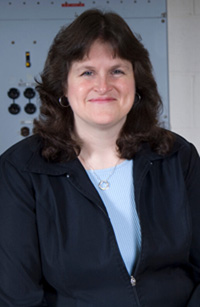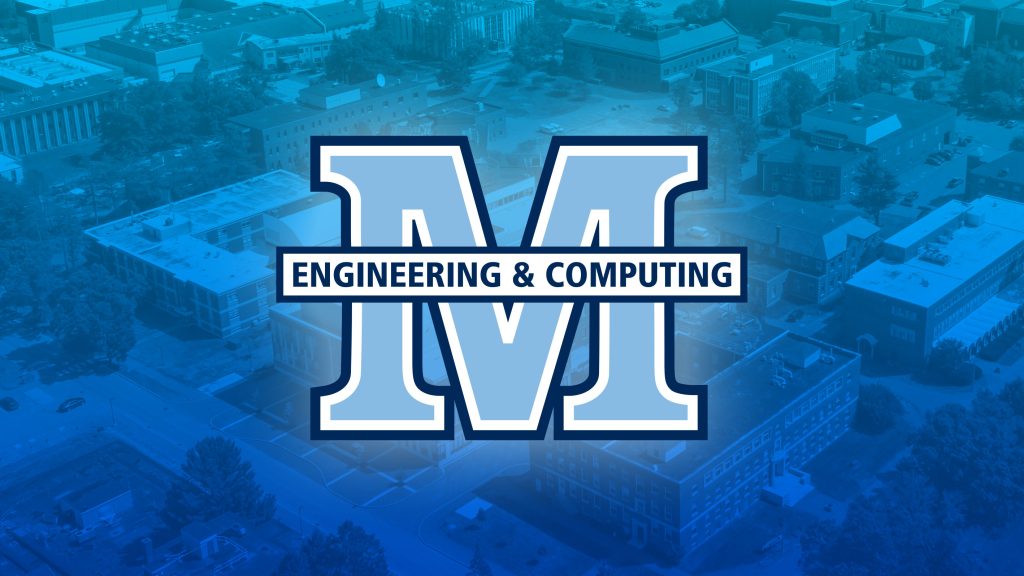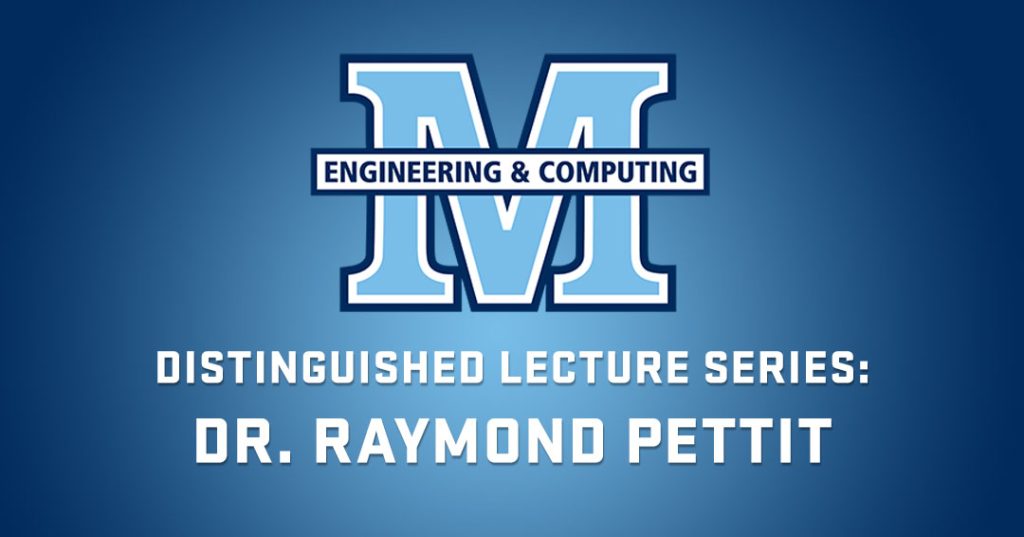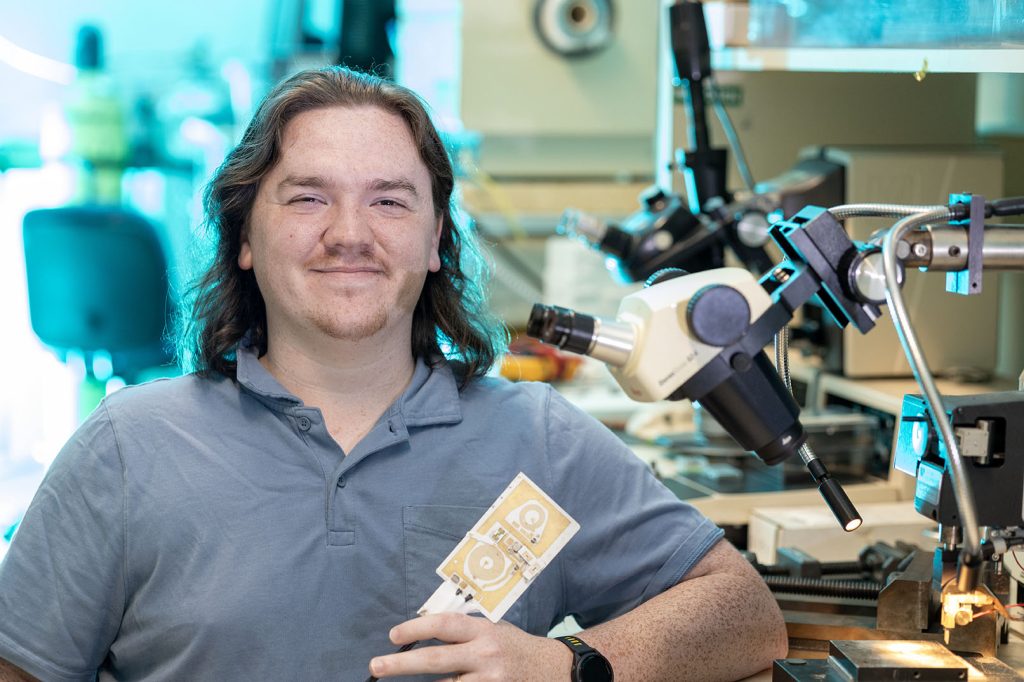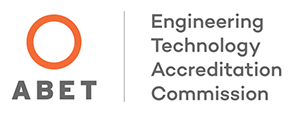Offering technical and management expertise needed to thrive in the electrical and manufacturing industries. Graduates gain hands-on experience with applied circuit design, automation, renewable energy, and power systems, leading to successful careers in project management, engineering, and more.
Thao Nguyen: Learning the language of microcontrollers
Thao Nguyen, a native of Vietnam, pursued further studies and enrolled in the University of Maine’s Electrical Engineering Technology program.
Electrical Engineering Overview
UMaine’s Electrical Engineering Technology (EET) program provides students with a comprehensive, hands-on education that prepares them to meet the growing demands of the electrical engineering and manufacturing industries. The curriculum combines technical knowledge with practical, real-world experience, covering critical areas such as electrical circuits, semiconductor electronics, microcomputer applications, electrical machinery, and power systems. Students gain expertise in applied circuit design, automation, integration, and grid connection, with a particular emphasis on renewable energy technologies. The program is structured to provide students with a blend of technical and management skills that enable them to take on leadership roles in diverse sectors, including manufacturing, power delivery, alternative energy, and field engineering.
Graduates of the EET program go on to excel in a variety of roles such as electrical and instrumentation engineers, project engineers, equipment engineers, and applications engineers. They work for leading employers in the region, including major firms like General Electric, Pratt & Whitney, and Toyota, as well as smaller, specialized companies in sectors like semiconductor manufacturing, power systems, and consulting. Many alumni have gone on to assume management positions within 10 years of graduation or have launched their own engineering firms.
The EET program at UMaine is ideal for students who want to learn the applied aspects of electrical engineering and technology, and who are ready to step directly into technical roles in today’s fast-paced, technology-driven world. With a focus on both theory and practice, this program offers students the opportunity to make meaningful contributions to the electrical engineering field, solve complex problems, and lead the way in innovations that drive industry forward.
Programs Offered
Undergraduate Level:
UMaine Course Catalog, Overview of Degree Requirements
- Bachelor of Science in Electrical Engineering Technology
- Electrical Engineering Technology Minor
- Electrical Engineering Technology Undergraduate Certificate
- Concentrations
- Power
- Electromechanical
- Information Technology
Graduate Certificates
Graduate Degrees
- Professional Science Master’s in Engineering & Business, Electrical Engineering Technology | Exclusively Online
- Master of Science (MS) in Engineering Technology, Electrical Engineering Technology | Exclusively Online
- Doctor of Engineering (Eng.D.) in Engineering Technology, Surveying Engineering Technology
What are the Fundamentals of Engineering (FE) & Principles & Practice of Engineering (PE) exams good for?
To a client, being a P.E. means you’ve got the credentials to earn their trust. To an employer, it signals your ability to take on a higher level of responsibility. Among your colleagues, it demands respect. To yourself, it’s a symbol of pride and measure of your own hard-won achievement.
Frequently Asked Questions
Curious about Electrical Engineering Technology? Whether you’re a prospective student exploring career options or a current student looking for program details, this FAQ covers everything you need to know. From course topics and career opportunities to hands-on learning and industry demand, get answers to your most common questions about this exciting and evolving field.
Life After Graduation
Life As An EET Student
Engineering and Engineering Technology – Similarities and Differences
Many engineering graduates find roles as “engineers”, but the differences between various engineering degree programs and the nature of the jobs they lead to are often unclear. A look at the history of these programs helps to better understand their evolution.
Our Faculty & Staff
At MCEC, our faculty is the heartbeat of our academic community. Dedicated, inspiring, and deeply knowledgeable, our professors go beyond the traditional classroom experience to foster real-world skills and a passion for learning. Whether mentoring, leading innovative research, or providing personalized support, our faculty members are committed to empowering students to achieve their highest potential
Paul Villeneuve
Judith Pearse
John Allen
School of Engineering Technology Contact Information
Erin Ellis
um.set@maine.edu
Administrative Specialist
Erin Wight
um.set@maine.edu
Academic Coordinator
Kayla Bouchard
um.set@maine.edu
Administrative Supervisor
5711 Boardman Hall,
Room 119
Orono, Maine 04469-5711
Tel: (207) 581-2340
MCEC NEWS



